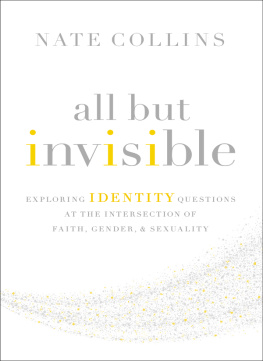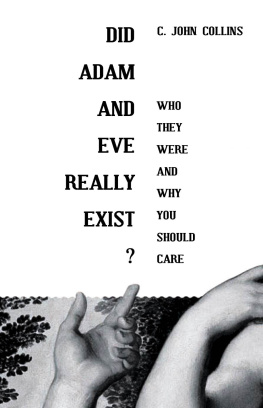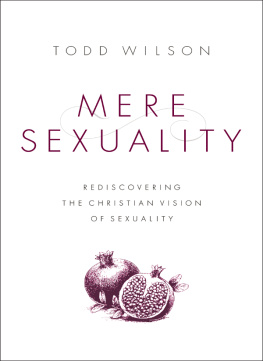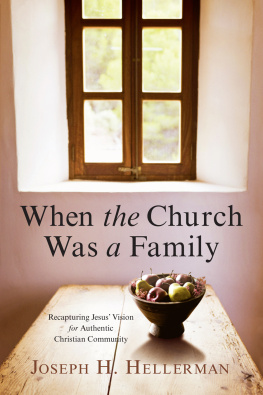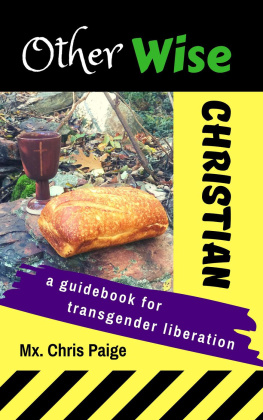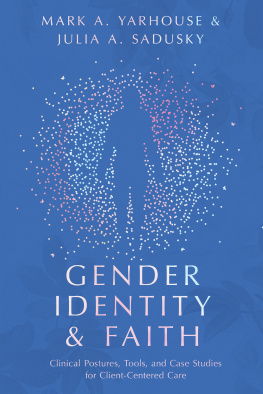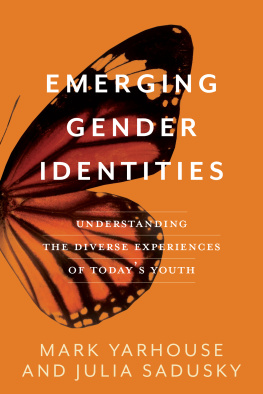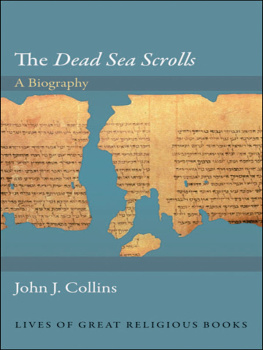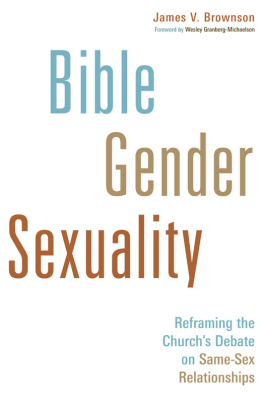Nate Collins has been researching and thinking through LGBTQ related questions for many years, and his new book, All But Invisible, represents the fruit of his journey. In it, Collins asks new questions and develops fresh categories regarding orientation and identity, and he does so in a thorough yet accessible way. This truly is a valuable contribution to the discussion and not just yet another book to be thrown on the pile of LGBTQ books. There are few people on the planet that I resonate with more than Nate Collins on this topic.
P RESTON S PRINKLE , cofounder and president, The Center for Faith, Sexuality, and Gender
Nate Collins All But Invisible is a significant contribution to the ongoing discussion about Christianity, gender, and sexuality. Collins holds a traditional Christian sexual ethic but argues that many conservative Christians are, unfortunately, unaware of ways that cultural Christianity in North America can make it difficult for gay people to live out the traditional sexual ethic. For the sake of our Christian witness, it is critical that we identify these roadblocks to faithfulness and remove them. All But Invisible is not the first word or the last word, but it is an important word. Even if you are not persuaded on every pointas I am notyou will be grateful you read the book.
B RUCE A SHFORD , professor of theology and culture, provost and dean of faculty, Southeastern Baptist Theological Seminary
As a minister, my chief responsibility is to preach the entire Word of God. Sometimes this puts me in the awkward, insecure position of declaring truths that cost me very little personally but that have deep, life-altering implications for others. When this is the case, it helps immensely to be able to point people to other voices for whom the subject matter is not merely academic but part of their lived-out, cruciform faithfulness. One such voice is Nate Collins. In All But Invisible, Nate provides thorough research, thoughtful counsel, personal transparency, and robust biblical support for staying true to the churchs historic teaching about same-sex relationships. He does so not merely as a theorist but as a faithful practitioner of the truths which he espouses, and this makes all the difference. I cant recommend this book highly enough.
S COTT S AULS , senior pastor, Christ Presbyterian Church, Nashville; author, Jesus outside the Lines and Befriend
This is an important and necessary book. Nate Collins invites us to consider the world from his perspective: a gay Christian committed to traditional morality. He is hardly the only such person, of course, but as his title indicates, people like him have been rendered all but invisible in noisy debates in church and culture. He rereads Scripture and culture, exploring the nature of desire and of identity along the way, and presents a compelling and attractive case for looking at the world and the church, and the place of lesbian and gay people in both, in a new way. All of us who presume to talk about sexuality or to seek to love our gay and lesbian friends should stop and listen.
S TEPHEN R. H OLMES , senior lecturer in theology and head of the School of Divinity, University of St. Andrews
This book will provoke both conservative and progressive readers. Thoroughly researched and charitably written, Collins asks Christians to maintain biblical authority even as they dismantle churchly structures that reduce gay people to invisibility. His is an important new voice calling for no less than a reconceptualization of Christian community.
L ISA W EAVER S WARTZ , PhD, sociologist
ZONDERVAN
All But Invisible
Copyright 2017 by Nathan Collins
Requests for information should be addressed to:
Zondervan, 3900 Sparks Dr. SE, Grand Rapids, Michigan 49546
ePub Edition July 2017: ISBN 978-0-310-52603-2
Unless otherwise noted, Scripture quotations are taken from The Holy Bible, New International Version, NIV. Copyright 1973, 1978, 1984, 2011 by Biblica, Inc. Used by permission of Zondervan. All rights reserved worldwide. www.Zondervan.com. The NIV and New International Version are trademarks registered in the United States Patent and Trademark Office by Biblica, Inc.
Scripture quotations marked ESV are from the ESV Bible (The Holy Bible, English Standard Version). Copyright 2001 by Crossway, a publishing ministry of Good News Publishers. Used by permission. All rights reserved.
Scripture quotations marked NASB are from New American Standard Bible. Copyright 1960, 1962, 1963, 1968, 1971, 1972, 1973, 1975, 1977, 1995 by The Lockman Foundation. Used by permission. (www.Lockman.org).
Any Internet addresses (websites, blogs, etc.) and telephone numbers in this book are offered as a resource. They are not intended in any way to be or imply an endorsement by Zondervan, nor does Zondervan vouch for the content of these sites and numbers for the life of this book.
All rights reserved. No part of this publication may be reproduced, stored in a retrieval system, or transmitted in any form or by any meanselectronic, mechanical, photocopy, recording, or any otherexcept for brief quotations in printed reviews, without the prior permission of the publisher.
Cover design: Brand Navigation
Interior design: Denise Froehlich
17 18 19 20 21 /DHV/ 10 9 8 7 6 5 4 3 2 1
To Sara
Information about External Hyperlinks in this ebook
Please note that footnotes in this ebook may contain hyperlinks to external websites as part of bibliographic citations. These hyperlinks have not been activated by the publisher, who cannot verify the accuracy of these links beyond the date of publication.
In a series of recent essays on gay experience and Christian ethics, Anglican theologian Oliver ODonovan has repeatedly made the point that Christian churches and individual Christian believers must pay attention to lesbian and gay peoples own efforts to comprehend their lives. The particular experience of gay Christians should be, says ODonovan, reflected on by those who are called to live this experience, by those who are called to accompany them in their living, by all who share their understanding of living as something they owe an account of to God.
What makes this listening so important is that many voices in our world presume to speak for gay people. Before many of us who are gay or lesbian can get a word in edgewise, someone else has already spoken up on our behalf. On the one hand, more progressive liberal spokespersons announce to the world that what we gay people most need and want is marriage, modeled after the relationship that straight people have long enjoyed. On the other hand, the more stridently right-wing conservative spokespersons assure the world that what we gay people really want, whether we know it or not, is to escape our homosexuality and live either on the margins of society and church or else as former homosexuals in much the same way as our straight neighbors and friends live. In both cases, though, how often have such presumed spokespersons taken the time to listen toto really explore and understand the nuances oflived gay experience? Not often, it would seem.
Too many voices in our cultural furor over same-sex relationships appear, as ODonovan says, more interested in gays as victims of persecutionor else as poster children for some supposed healing or liberationthan as bearers of a distinct experience that can be of importance and interest in its own right. This should not be! Christians of all stripes, especially, need to attend to what is offered for Christian understanding out of the gay experience, and not just gay experience as its usually narrated in our public spaces. We need to pay attention to the overlooked forms of gay experience, the less eagerly spotlighted ones, the less understood and less trumpeted ones, the ones that dont lend themselves to any tidy conclusions or simple narrative presentations.

